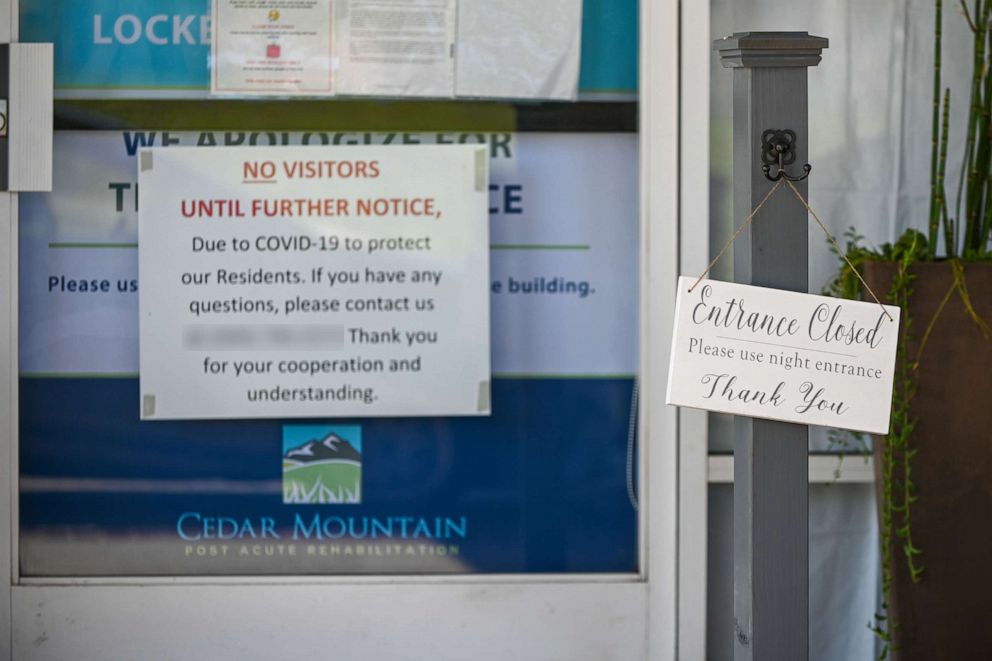Cut off from loved ones in nursing care by coronavirus, families fear the unknown
COVID-19 has left families of loved ones in nursing homes fearing the unknown.
Jenn Hubbert was working from home on March 17 when her husband called out to her from across the house.
“He was watching TV when he realized the breaking news was about my mother’s nursing facility,” said Hubbert, a real estate agent in Florida. “The first death from coronavirus had been reported, and I didn't even know there was a case there. I was in disbelief.”
The Hubberts are part of a growing segment of the country suffering through the anxiety of a global pandemic with a loved one in a nursing home -- an anxiety-ridden experience as their elderly relatives remain locked down in facilities that have proven to be highly vulnerable to viral spread.
Since the coronavirus engulfed a senior living center in Kirkland, Washington, on Feb. 29, at least 400 nursing facilities in more than 25 states have seen at least one resident contract COVID-19, according to the Centers for Disease Control and Prevention. Across the country, nursing homes are seeing deadly outbreaks almost every day. More than 100 residents and staff were infected and 18 died at a home in Maryland, and more than 100 others were infected and five died at one in Tennessee; and 133 tested positive and 17 died at a facility in Virginia, according to figures released by the states last week.
In an effort to shield the facilities, nursing homes across the country have enacted tight cordons, banning visitors and isolating residents. Already under immense pressure as they attempt to combat the virus, nursing home staff are also trying to field urgent questions from concerned family members about conditions.

The combination of the well-intentioned measures and lack of information has been hard on some families, who told ABC News the limited interactions with their loved ones have added to their emotional strain and in some cases left them in the dark and unable to check on their relatives' well-being.
In Louisiana, Tunney Barrett says he learned of an outbreak at his mother’s nursing home through news reports. But when he called to learn more, Barrett said the facility initially would not say anything and at first denied the positive case. He was unable to get information directly from his mother, he said, because she has Parkinson’s disease and dementia.
“They don’t understand what families are going through,” Barrett said. “We are being kept in the dark about what’s going on.”
Barrett said he has considered trying to remove his mother from the nursing facility, but he said he worries he cannot provide her with the around-the-clock monitoring she needs.
For Caroline Langdon, whose 85-year-old mother has advanced Alzheimer's disease and is a resident in the memory care unit at St. James Place in Louisiana, the hardest part is not being able to continue her routine of seeing her mom every week.




